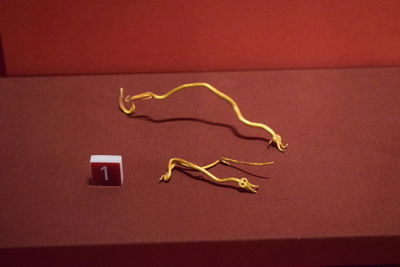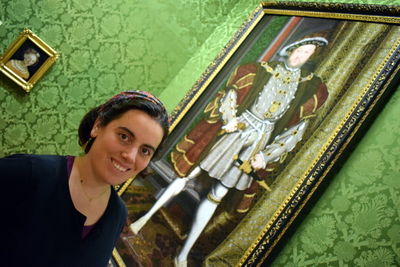Elena & Fabrice's Web
m (→Viking and Anglo-Saxons) |
m (→Civil war and revolution) |
||
| Line 18: | Line 18: | ||
== Civil war and revolution == | == Civil war and revolution == | ||
| + | |||
| + | === Charles I & II === | ||
| + | |||
| + | * {{thisday|10|March|1629}}: Charles dissolves Parliament and starts an 11-year period of personal rules. | ||
| + | * {{thisday|22|August|1642}}: Civil War begins as Charles I raises his standard at [[Nottingham]]. | ||
| + | * {{thisday|5|May|1646}}: Charles I surrenders to the Scots. | ||
| + | * {{thisday|30|January|1649}}: Charles I is executed at Whitehall, [[London]]. | ||
| + | * {{thisday|1|January|1651}}: [[Charles II]] is crowned king of Scotland. | ||
| + | * {{thisday|3|September|1651}}: Final battle of the English Civil War with [[Cromwell]] defeating [[Charles II]] in [[Worcester]]. | ||
| + | * {{thisday|29|May|1660}}: Charles II is restored to the throne. | ||
| + | * {{thisday|6|February|1685}}: Charles II dies and [[James II]] accedes to the throne. | ||
== British Empire == | == British Empire == | ||
Revision as of 16:18, 1 September 2019
Contents |
History of the British people
Prehistory
Romain Britain
Viking and Anglo-Saxons
There were three dominant Anglo-Saxon kingdoms: Wessex, Mercia and Northumbria.

Norman conquest and Middle ages
Tudor Britain

Civil war and revolution
Charles I & II
- 10 March (1629): Charles dissolves Parliament and starts an 11-year period of personal rules.
- 22 August (1642): Civil War begins as Charles I raises his standard at Nottingham.
- 5 May (1646): Charles I surrenders to the Scots.
- 30 January (1649): Charles I is executed at Whitehall, London.
- 1 January (1651): Charles II is crowned king of Scotland.
- 3 September (1651): Final battle of the English Civil War with Cromwell defeating Charles II in Worcester.
- 29 May (1660): Charles II is restored to the throne.
- 6 February (1685): Charles II dies and James II accedes to the throne.